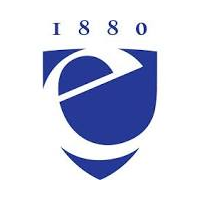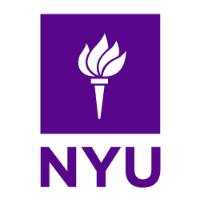What do they do?
Operate television, video, or film camera to record images or scenes for television, video, or film productions.
Also known as:
Camera Operator, Camera Person, Cameraman, Master Control Operator (MCO), News Videographer, Operations Technician, Production Technician, Studio Camera Operator, Studio Technician, Television Camera Operator, Television News Photographer, Video Coordinator, Videographer
-
6.3%
Change
Ranks #38 in job growth rate30Job Openings
Ranks #39 in net job growth
-
Emerson College
Boston, MA
-
University of North Carolina School of the Arts
Winston Salem, NC
-
Chapman University
Orange, CA
-
University of Southern California
Los Angeles, CA
-
New York University
New York, NY
Looking for colleges that offer a specific major? Use the College Match Tool to find your best-matched schools and discover your estimated Net Price!
- Doctorate or Professional Degree (1%)
- Master's degree (9%)
- Bachelor's degree (56%)
- Associate's degree (8%)
- Some college, no degree (17%)
- High school diploma equivalent (7%)
- Less than high school diploma (1%)
Most Popular Majors that prepare Camera Operators, Television, Video, and Film
-
#1
-
Degrees Granted
7,532
-
Female Students
3,241
-
Male Students
4,291
-
Median Starting Salary
$39,600
-
-
#2
-
Degrees Granted
1,214
-
Female Students
448
-
Male Students
766
-
Median Starting Salary
$40,500
-
-
#3
-
Degrees Granted
596
-
Female Students
109
-
Male Students
487
-
Median Starting Salary
$40,500
-
-
#4
-
Degrees Granted
94
-
Female Students
54
-
Male Students
40
-
Median Starting Salary
$39,600
-
People in this career often know a lot about:
- English Language - Knowledge of the structure and content of the English language including the meaning and spelling of words, rules of composition, and grammar.
- Computers and Electronics - Knowledge of circuit boards, processors, chips, electronic equipment, and computer hardware and software, including applications and programming.
- Communications and Media - Knowledge of media production, communication, and dissemination techniques and methods. This includes alternative ways to inform and entertain via written, oral, and visual media.
- Telecommunications - Knowledge of transmission, broadcasting, switching, control, and operation of telecommunications systems.
People in this career often have talent in:
- Visualization - The ability to imagine how something will look after it is moved around or when its parts are moved or rearranged.
- Near Vision - The ability to see details at close range (within a few feet of the observer).
- Far Vision - The ability to see details at a distance.
- Oral Expression - The ability to communicate information and ideas in speaking so others will understand.
- Problem Sensitivity - The ability to tell when something is wrong or is likely to go wrong. It does not involve solving the problem, only recognizing that there is a problem.
- Oral Comprehension - The ability to listen to and understand information and ideas presented through spoken words and sentences.
- Speech Clarity - The ability to speak clearly so others can understand you.
- Visual Color Discrimination - The ability to match or detect differences between colors, including shades of color and brightness.
- Speech Recognition - The ability to identify and understand the speech of another person.
People in this career often do these activities:
- Determine technical requirements of productions or projects.
- Operate still or video cameras or related equipment.
- Edit audio or video recordings.
- Coordinate activities of production personnel.
- Set up still or video cameras or related equipment.
- Collaborate with others to determine technical details of productions.
- Inspect sets or exhibits.
- Select materials or props.
- Review details of technical drawings or specifications.
- Operate communications, transmissions, or broadcasting equipment.
- Maintain recording or broadcasting equipment.
- Manage content of broadcasts or presentations.
- Direct productions or performances.
- Write informational material.
- Create computer-generated graphics or animation.
- Label production materials.
- Research new technologies.
This page includes data from:

 Occupation statistics: USDOL U.S. Bureau of Labor Statistics Occupational Employment Statistics
Occupation statistics: USDOL U.S. Bureau of Labor Statistics Occupational Employment Statistics









